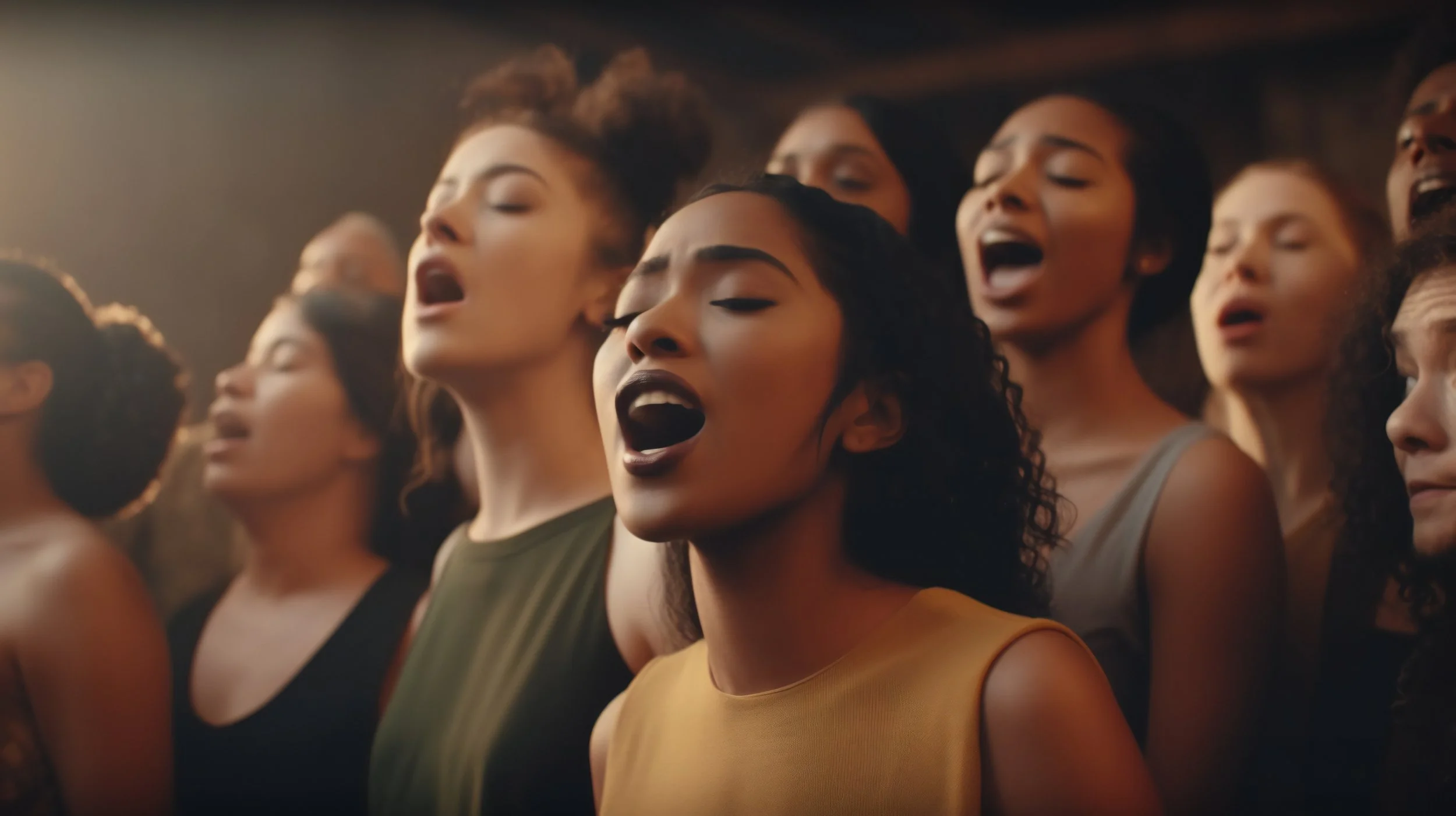The People Who Sing
Sing to the Lord, praise his name; proclaim his salvation day after day.
Declare his glory among the nations, his marvelous deeds among all peoples.
Psalm 96:2-3
Pastor and author Glenn Packiam describes how he received an email from a missionary friend who was serving in Spain. Besides the Roman Catholic Church, the only other religious group the people in the area were familiar with was the Jehovah’s Witnesses.
Even though the missionary and his coworkers tried to explain that they were not Jehovah’s Witnesses, but rather connected with an evangelical church in town, the locals did not know what to make of them. To their way of thinking, the two groups were the same.
These missionaries would often gather in an apartment for a meal and for worship. On warm summer nights, with no air conditioning, the windows and doors to the balcony were always open. The music would reverberate throughout the neighborhood, and everyone seemed to enjoy it.
Soon, the people began referring to them as la gente que canta, which roughly translates as “the people who sing.” Eventually, this became their identifying trait.
When they were out on the streets, striking up conversations and trying to talk to people about Jesus, they would be asked who they were. “Are you the Jehovah’s Witnesses?” “No,” they would reply. “Are you the people who sing?” “YES!” they answered enthusiastically. “We are the people who sing.”
Smiles would break out, and the conversation would flow. There was something magnetic about the people who sing.
The Singing Church
The people of God are always singing. It is first seen in the gospel of Luke. There are four songs recorded in the first two chapters (1:46-55; 1:67-79; 2:13-14; 2:28-32). These became regular choruses for the early church.
But it wasn’t only in the good times that God’s people sang. They did so when they were facing difficult times.
For example, when Paul and Silas found themselves arrested, beaten, and imprisoned in Philippi, they sang. With bruises on their backs and blood on their lips, at midnight they sang.
I thought about that in light of the challenges we are facing here in our country. Tomorrow’s election will be taking place in arguably one of the most contentious times in our nation’s history.
Uncertainty is pervasive. Fear is rampant. Yet, when you stop to think about it, that’s no different than in the days of the early church.
As a marginalized, even persecuted minority, those early believers trusted that there was One above it all… One who was in total control… One worthy of their trust and worship. And so should we.
We are the people who sing. It’s no wonder that many of Paul’s letters contain eruptions of praise, whether through a prayer or a hymn (Romans 11:33-36; Ephesians 1:3-6). It’s as if the apostle couldn’t help himself.
But the climax of such worshipful singing is seen in the book of Revelation. It is full of scenes where the angels and saints lift their voices in song (Revelation 4:8-11; 5:9-14; 7:9-12; 19:1-8).
Not even a century after the New Testament era, when a local governor named Pliny wrote to his uncle, the Emperor Trajan, about the behavior of the Christians, he spoke of how they would rise early and gather to sing hymns to Christ as if to a god. We are the people who sing.
From the beginning, God’s redemptive plan was to deliver His creation from sin and death to redemption and life, resulting in God’s glory. One day, everything in heaven and earth will celebrate that by lifting their voices in worship.
So, think about this, friends. Every time a local church gathers in worship, we are not only offering our praise this day, but we are also rehearsing for that day. More than that, we are getting a foretaste of the world to come.
Devotionals for Every Day Disciples is brought to you by our partners.
To support Dave DeSelm Ministries by becoming a partner, CLICK HERE.

